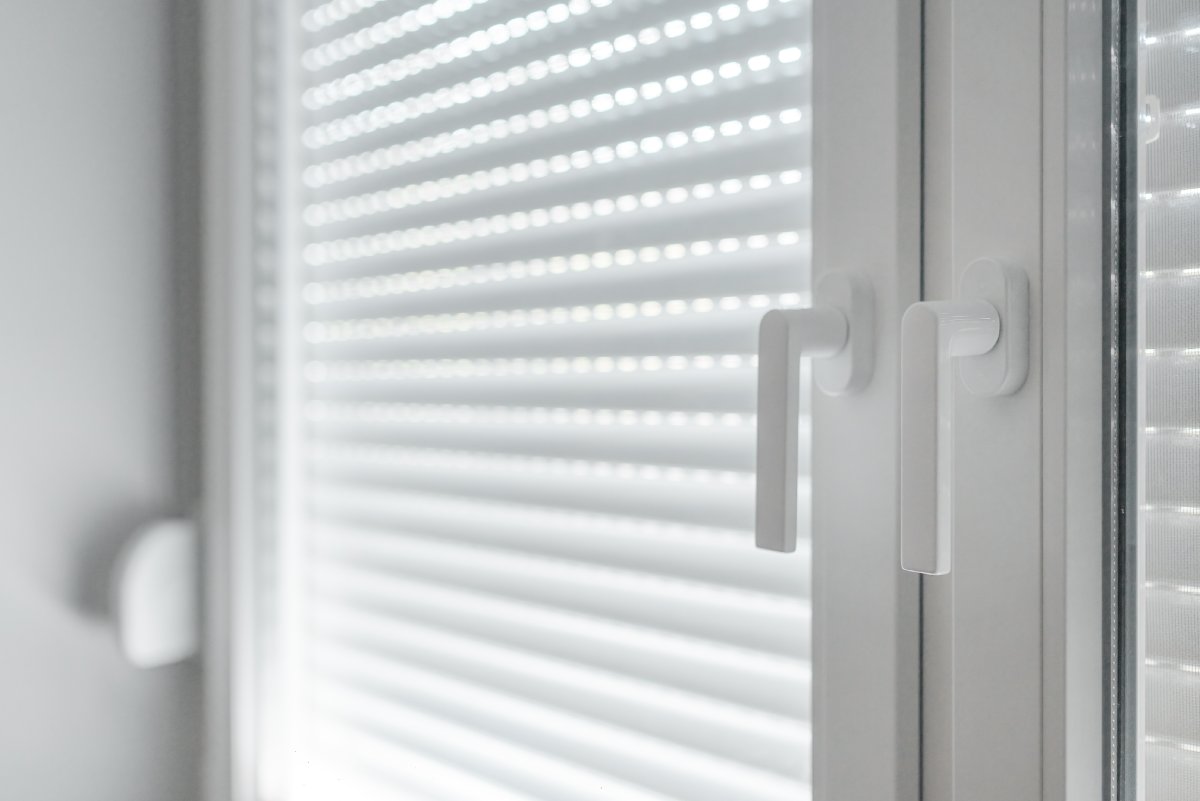Are you in the market for plantation shutters but you can’t quite make up your mind about which material to choose? If so, it is completely understandable given just how many different options there are available today.
In order to make the decision process a little easier for you, we’re going to compare two of the most popular material choices for plantation shutters in Australia.
We’ll share an honest assessment of both materials with their relevant pros and cons. Let’s jump straight into it!
What are the pros of PVC plantation shutters?
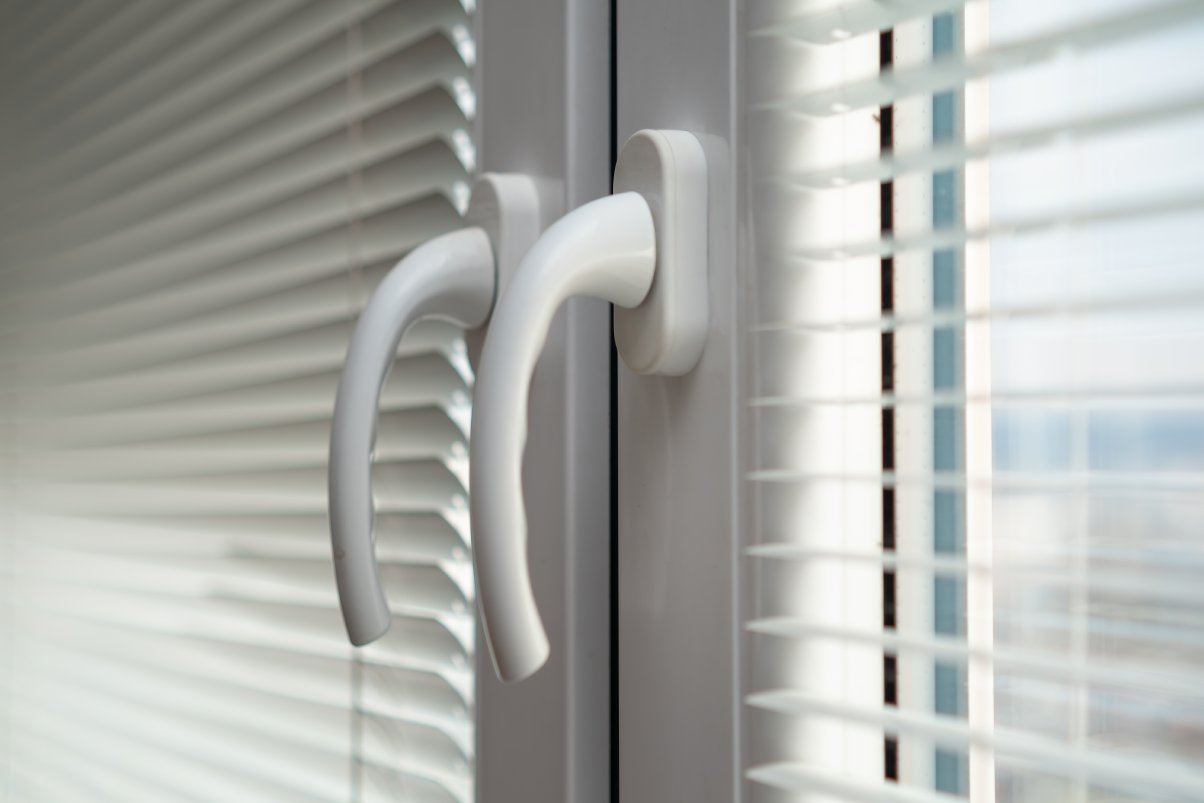
PVC plantation shutters are a very strong contender and a popular choice among many Australian homeowners. Here’s why:
- PVC plantation shutters can easily last for a good 20 years or more when maintained properly.
- They boast excellent UV resistance which means they will not crack, chip, split, or warp when exposed to the sun.
- PVC shutters are made from polyvinyl chloride (which is why they are often referred to as vinyl plantation shutters), and this material is a synthetic polymer renowned for its excellent durability.
- Light-weight.
- 100% waterproof (perfect for bathroom and laundry room environments with high humidity).
- Great insulation properties and thus brilliant for reducing energy consumption at home.
- Quality PVC plantation shutters are non-toxic – which is important. If you go with a lower-quality PVC, they may use VOCs during the manufacturing process. This can be a problem when exposed to sunlight as there is a chemical reaction that causes the PVC to give off dangerous chemicals. However, when you roll with high-quality PVC plantation shutters, you don’t need to worry about that!
What are the cons of PVC plantation shutters?
While PVC plantation shutters are excellent, they do have a few drawbacks:
- If scratched or dented, repairing the louvres is impossible, meaning the individually affected slats will need to be replaced.
- PVC shutters do have a distinctive ‘plastic’ aesthetic which does look inferior to most other materials.
- There are certain size limitations for PVC shutters. For example, as PVC is heavier than timber, it limits the width to 700mm. Given that most modern windows are 900mm wide, it means that two panels are required to fit the windows correctly – compromising the overall seamlessness for which plantation shutters are renowned.
- PVC shutters have a higher carbon footprint than their timber counterparts.
What are the pros of wood plantation shutters?
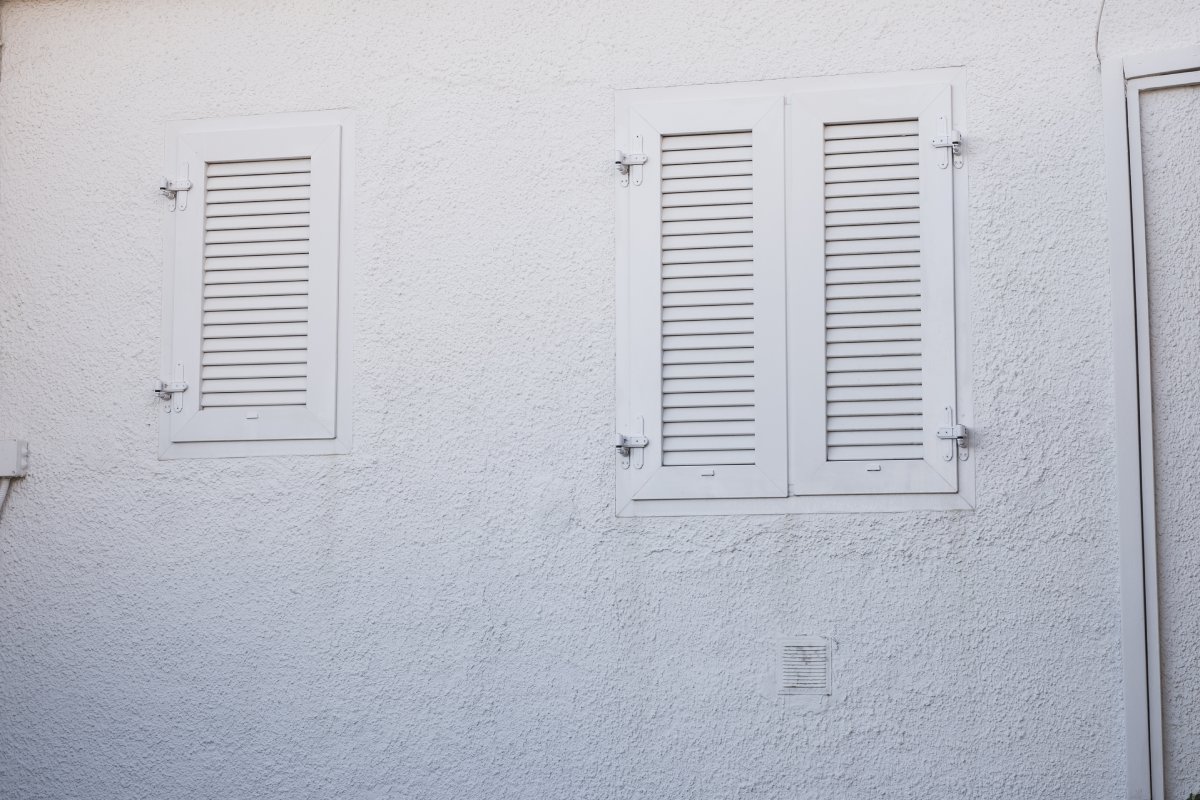
As for timber/hardwood plantation shutters, they are without question, the number 1 winner when it comes to aesthetics. Timber plantation shutters are available in a variety of hardwood and softwood materials, each with its own colour temperature and gain. This gives you greater flexibility in matching your interior.
- Timber shutters have exceptional durability – despite being lightweight.
- The lightweight nature of the material means that the shutters can be a greater width without the risk of sagging (they can fit most modern windows comfortably without the need for additional panels).
- This is one of the eco-friendliest options as all timber used to manufacture shutters is sourced from the appropriate, sustainable plantations.
- When finished properly they have excellent water resistance and can be used in bathrooms and laundry rooms.
- High-quality timber shutters that are well-maintained have one of the highest longevity ratings. In some cases, they can last up to 50 years and beyond.
What are the cons of wood plantation shutters?
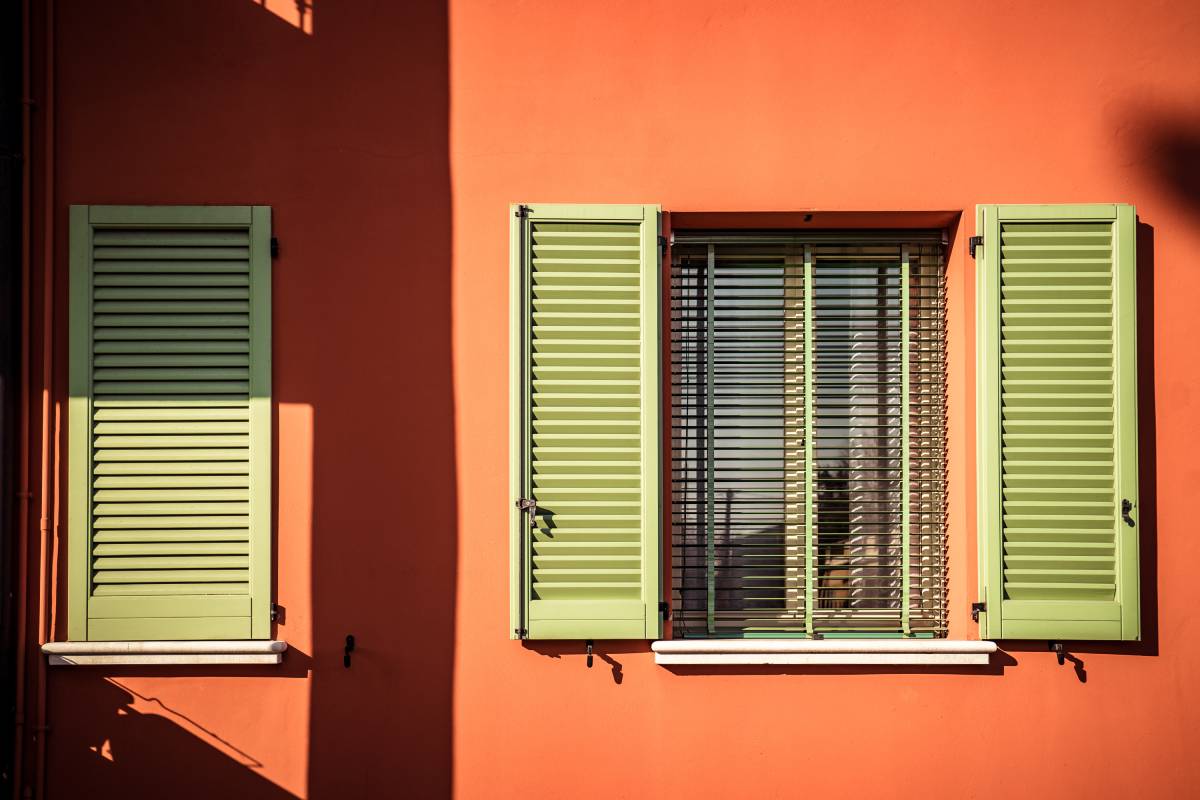
Of course, as with any product that has so many benefits, there are always a few drawbacks, such as:
- Timber plantation shutters are typically the most expensive of all material choices. That said, some timber grains are cheaper than others.
- They require regular maintenance – particularly with re-painting / re-finishing to keep them protected from the elements.
- If not properly finished or maintained, timber plantation shutters can deteriorate in the humidity and under the harsh sun.
Conclusion PVC vs wood plantation shutters
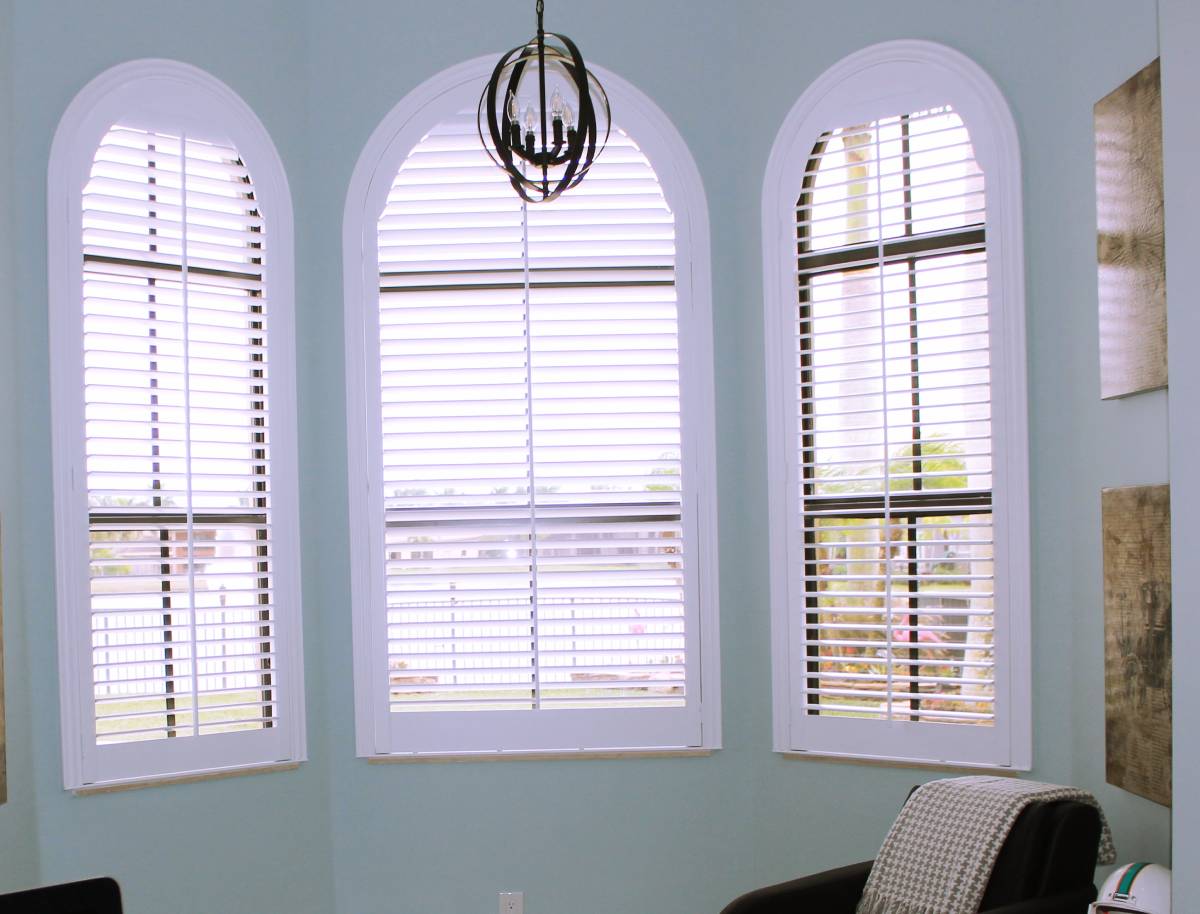
So, in conclusion, which is the better material, PVC or wooden / timber plantation shutters?
As you can see, it’s actually very close and thus quite difficult to call an “absolute” winner. It all comes down to:
- Budget
- Taste
- Application requirements.
For example: if you are working on a bit of a budget but need to have plantation shutters installed throughout your home, PVC shutters might be the preferred option.
That said, if you prefer the hardwood aesthetic, timber plantation shutters are unrivalled in their appearance.
As for application requirements, while timber plantation shutters can be finished to boast some water resistance, PVC shutters are 100% waterproof and thus far better suited to a bathroom/laundry room environment.
It’s all about weighing up your options and deciding which material choice will provide you with the most practical advantages given your needs and available budget.
We hope that this has given you some inspiration and that you now have a clearer idea as to which of the two materials you would prefer to roll with. Good luck with your home renovation project!

